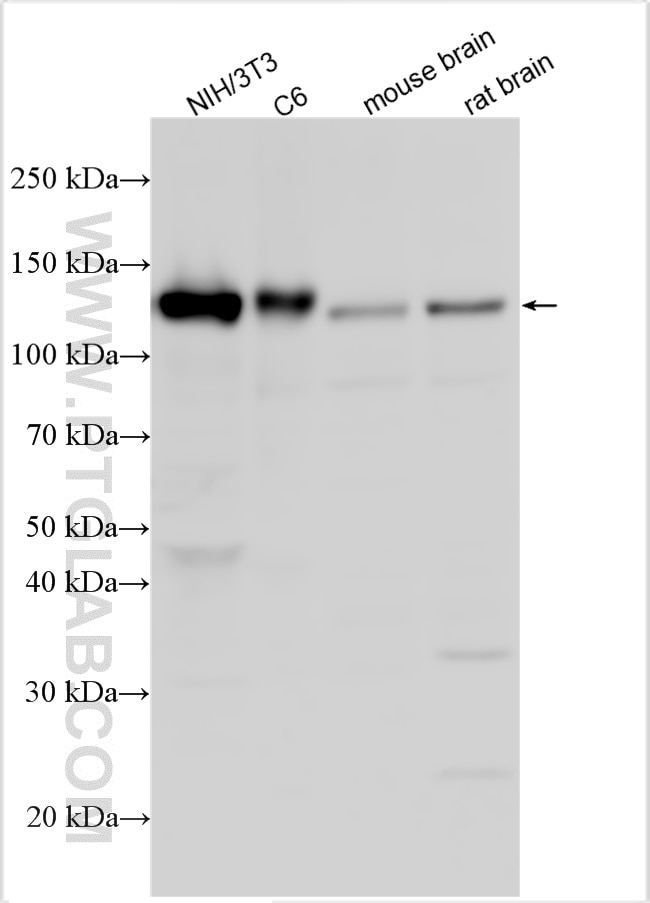EPHA2 Polyklonaler Antikörper
EPHA2 Polyklonal Antikörper für WB, ELISA
Wirt / Isotyp
Kaninchen / IgG
Getestete Reaktivität
human, Maus, Ratte
Anwendung
WB, ELISA
Konjugation
Unkonjugiert
Kat-Nr. : 11652-1-AP
Synonyme
Geprüfte Anwendungen
| Erfolgreiche Detektion in WB | NIH/3T3-Zellen, C6-Zellen, Maushirngewebe, Rattenhirngewebe |
Empfohlene Verdünnung
| Anwendung | Verdünnung |
|---|---|
| Western Blot (WB) | WB : 1:1000-1:4000 |
| It is recommended that this reagent should be titrated in each testing system to obtain optimal results. | |
| Sample-dependent, check data in validation data gallery | |
Produktinformation
11652-1-AP bindet in WB, ELISA EPHA2 und zeigt Reaktivität mit human, Maus, Ratten
| Getestete Reaktivität | human, Maus, Ratte |
| Wirt / Isotyp | Kaninchen / IgG |
| Klonalität | Polyklonal |
| Typ | Antikörper |
| Immunogen | EPHA2 fusion protein Ag2221 |
| Vollständiger Name | EPH receptor A2 |
| Berechnetes Molekulargewicht | 976 aa, 108 kDa |
| Beobachtetes Molekulargewicht | 125-130 kDa |
| GenBank-Zugangsnummer | BC037166 |
| Gene symbol | EPHA2 |
| Gene ID (NCBI) | 1969 |
| Konjugation | Unkonjugiert |
| Form | Liquid |
| Reinigungsmethode | Antigen-Affinitätsreinigung |
| Lagerungspuffer | PBS with 0.02% sodium azide and 50% glycerol |
| Lagerungsbedingungen | Bei -20°C lagern. Nach dem Versand ein Jahr lang stabil Aliquotieren ist bei -20oC Lagerung nicht notwendig. 20ul Größen enthalten 0,1% BSA. |
Hintergrundinformationen
EPHA2 (Ephrin type-A receptor 2) belongs to the receptor tyrosine kinase (RTK) family, with 16 known receptors and 9 known membrane-bound ligands in all species. Based on the extracellular domain sequence homology, structure, and binding affinity, Eph receptors and their ephrin ligands can be divided into A and B subtypes (PMID: 33962882). EPHA2 contains a conserved N-terminal ligand-bound extracellular domain, a transmembrane domain, and a conserved tyrosine kinase domain (PMID: 8070404).
Protokolle
| PRODUKTSPEZIFISCHE PROTOKOLLE | |
|---|---|
| WB protocol for EPHA2 antibody 11652-1-AP | Protokoll herunterladen |
| STANDARD-PROTOKOLLE | |
|---|---|
| Klicken Sie hier, um unsere Standardprotokolle anzuzeigen |


